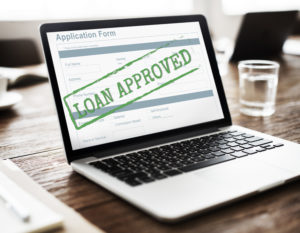Homeowners associations rely on a constant stream of funds in the form of assessments to cover the community’s operating expenses. But, there might come a time when this stream is interrupted for whatever reason, necessitating an HOA loan.
What Is an HOA Loan?
Simply put, an HOA loan is a sum of money your association borrows from a lender, typically a bank. As with all loans, your HOA must pay the sum back in full and with interest according to the agreed-upon timeline. Usually, when your HOA misses the deadline for payment, the bank will charge an additional interest.
Be careful not to confuse an HOA loan with an HOA line of credit, though. With the former, your HOA borrows a lump sum that you must then repay with interest over a fixed amount of time. An HOA line of credit, on the other hand, is a revolving account with a set credit limit. With it, your HOA can continuously borrow money from available funds and repay the debt with interest.
Why Are HOA Loans Necessary?
 A loan should not always be necessary, but it can help your association in times of financial strain.
A loan should not always be necessary, but it can help your association in times of financial strain.
Preferably, your HOA should have sufficient funds in both the operating account and reserve account. This is so you have enough money to cover all expenses, including maintenance, repairs, and capital improvements.
Unfortunately, problems with your funding can arise. For instance, a high delinquency rate can cause a significant budget deficit. If plenty of homeowners default on their assessments, your HOA would have a lack of funds.
Improper budgeting can also result in insufficient funds. If your HOA failed to allocate funds for unexpected expenses, you will need to either charge a special assessment or take out a loan. Sometimes, even after charging special assessments, some HOAs find that they still lack adequate funding.
On the other hand, your HOA may want to take out a loan in order to pay for certain services upfront. For instance, many insurance providers offer discounted rates when you pay for insurance premiums in advance. This could save your HOA a lot of money. Though, it is important to compare the amount you save from upfront payments with the interest amount of the loan. This way, you can be sure your HOA is actually saving money instead of losing it.
The Benefits of HOA Loans
Before taking out an HOA loan, it is essential to consider the pros and cons involved. Here are the benefits of an HOA loan:
- Prompt Funding. When your HOA takes out a loan, it immediately receives money that it can use to cover various expenses. Your HOA can pay for services in full instead of paying for them in increments. It also eliminates the need to dip into reserve funds or charge special assessments.
- Reduced Assessments. Because a loan can improve HOA financing in an instant, there is no longer a need to increase assessments in one go. Upcoming expenses are shouldered at once, which means homeowners won’t have to scramble to come up with a large sum of money in a short period of time. Instead, your HOA can increase assessments bit by bit over a longer time frame to settle the loan and its interest by the deadline.
The Pitfalls of HOA Loans
As with anything in life, HOA loans also pose certain risks. Here are the drawbacks of an HOA loan:
- Potential Mismanagement. Any organization is susceptible to mismanagement of funds, HOAs included. Several HOA-related fraud cases have hit headlines, and more are likely to occur. When your HOA takes out a loan, it might be used dishonestly. A good way to fight this is to keep the community’s members updated on where the money is going at all times. Maintaining transparency always helps to curb fraud.
- Possible Inability to Settle the Debt. With loans, there is always a possibility that your HOA may not be able to repay the amount. This can stem from mismanagement of funds, improper budgeting, and frivolous spending, among other reasons. As such, your HOA must seriously consider its financial situation first before taking out a loan. You must make sure your HOA can pay back the amount and interest in full when the time comes.
Understanding the Authority to Borrow
 You might wonder whether or not your HOA even has the power to secure a loan from the bank. The answer is, it depends. Not all homeowners associations are made equal.
You might wonder whether or not your HOA even has the power to secure a loan from the bank. The answer is, it depends. Not all homeowners associations are made equal.
To know whether your HOA has the authority to borrow, it is imperative to refer to your governing documents. Typically, your governing documents will also contain provisions and standard procedures related to HOA loans. For instance, your CC&Rs or bylaws may require a majority vote from the membership to approve the decision to borrow.
How to Apply for a Homeowners Association Loan
In general, banks consider HOA loans as business loans, most of which follow a structure of principal plus interest. These loans are taken out under the association’s name and can usually last up to 15 years. You can apply for an HOA loan either online or in-person, depending on the bank you choose. The bank will usually ask your HOA a set of questions to determine credit risk. Some sample questions include:
- What is the total number of housing units in your HOA?
- How many housing units are occupied by owners?
- How much do you charge for monthly assessments now?
- Will you increase monthly assessments to pay for the loan?
- What experience does your HOA board have in capital planning?
Paying Back the HOA Loan
Your HOA will have a set amount of time to repay the principal sum plus interest. To ensure your HOA has enough money to settle the debt, you must regularly put funds aside. You may need to increase the monthly assessment fee charged to homeowners or levy a special assessment to cover the loan amount. If your HOA fails defaults on loan payments entirely, banks may have the power to seek compensation directly from homeowners.
Should Your HOA Apply for a Loan?
Money makes the world go ’round, and HOAs are no exception. To operate smoothly, your HOA requires capital to cover various costs and expenses. But, that in itself should not influence your HOA’s decision to take out a loan. Instead, consider the pros and cons of an HOA loan as they relate to your association. Think about whether or not you actually need the loan before coming to a decision. Most of all, assess your HOA’s ability to eventually pay back the principal amount with interest.
If your HOA needs help with financial management, assessment collection, or insurance, contact Clark Simson Miller. We provide remote HOA management services to communities of all shapes and sizes. Give us a call at 865.315.7505 or email us at help@csmhoa.com to learn more.
RELATED ARTICLES:
- Is HOA Bankruptcy An Option?
- Should HOA Payments Plans Be Offered To Delinquent Homeowners?
- Protecting Your Community From HOA Fraud

